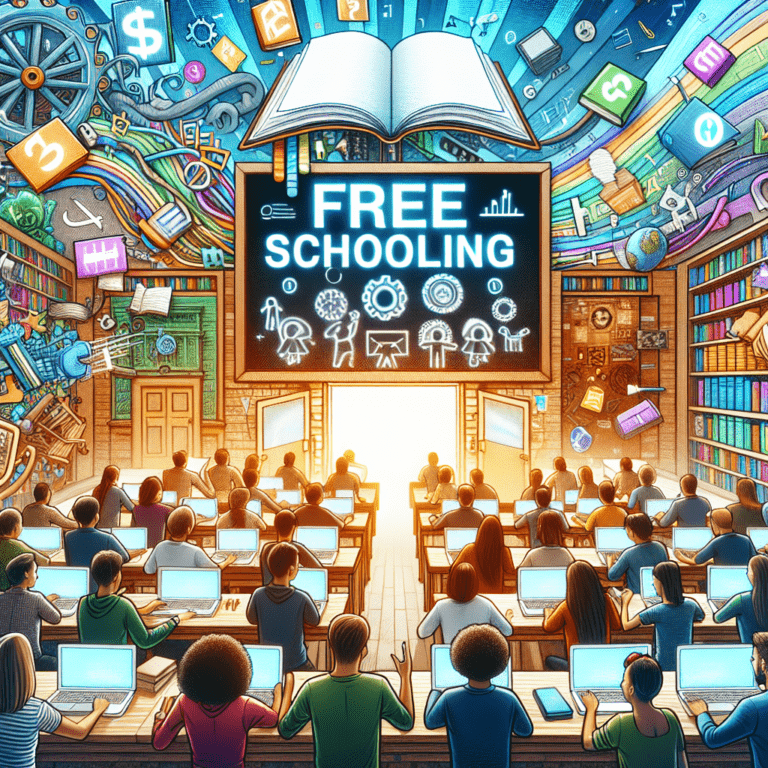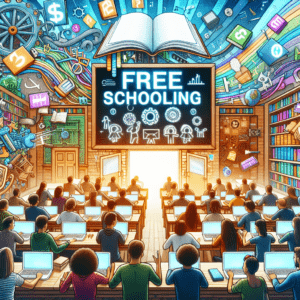Education is a fundamental aspect of society, shaping the minds and futures of individuals around the world. However, access to education has often been limited by socioeconomic factors, with many individuals unable to afford the high costs of tuition and materials. This has led to a wide disparity in educational opportunities, with the wealthy able to access the best schools and resources while the less fortunate struggle to afford even basic education.
In recent years, a movement has emerged to challenge this status quo and revolutionize the way education is delivered. Free schooling, also known as open education, aims to provide accessible and affordable education to all individuals, regardless of their financial situation. This movement has gained momentum in recent years, with a growing number of organizations and institutions offering free courses and resources online.
One of the most well-known platforms for free schooling is Coursera, which offers a wide range of online courses from top universities and institutions around the world. These courses cover a variety of subjects, from computer science to history, and can be taken for free by anyone with an internet connection. Similarly, Khan Academy offers free educational videos and exercises on a wide range of subjects, making learning accessible to students of all ages.
The rise of free schooling has the potential to democratize education and bridge the gap between the rich and poor. By providing free access to high-quality educational resources, individuals who may have been previously excluded from traditional education systems now have the opportunity to learn and grow. This is particularly important in developing countries, where access to education is often limited by factors such as poverty and lack of infrastructure.
Furthermore, free schooling can also benefit those in more privileged positions, providing opportunities for lifelong learning and skill development. With the rapid pace of technological advancement, the need for continuous learning has never been greater. Free schooling allows individuals to stay updated on the latest developments in their field and acquire new skills to stay competitive in the job market.
Despite the many benefits of free schooling, there are challenges that must be overcome in order to fully realize its potential. One of the main challenges is ensuring the quality and credibility of the educational resources provided. As the number of free schooling platforms continues to grow, it can be difficult for students to discern which courses are reputable and which are not. Additionally, there may be limitations in terms of accreditation and certification, which can affect the perceived value of the education received.
In conclusion, the rise of free schooling has the potential to revolutionize education and make learning accessible to all individuals, regardless of their financial situation. By providing free access to high-quality educational resources, free schooling can democratize education and empower individuals to reach their full potential. While there are challenges to be overcome, the benefits of free schooling far outweigh the potential drawbacks. As we continue to embrace this movement, we have the opportunity to create a more inclusive and equitable education system for all.







